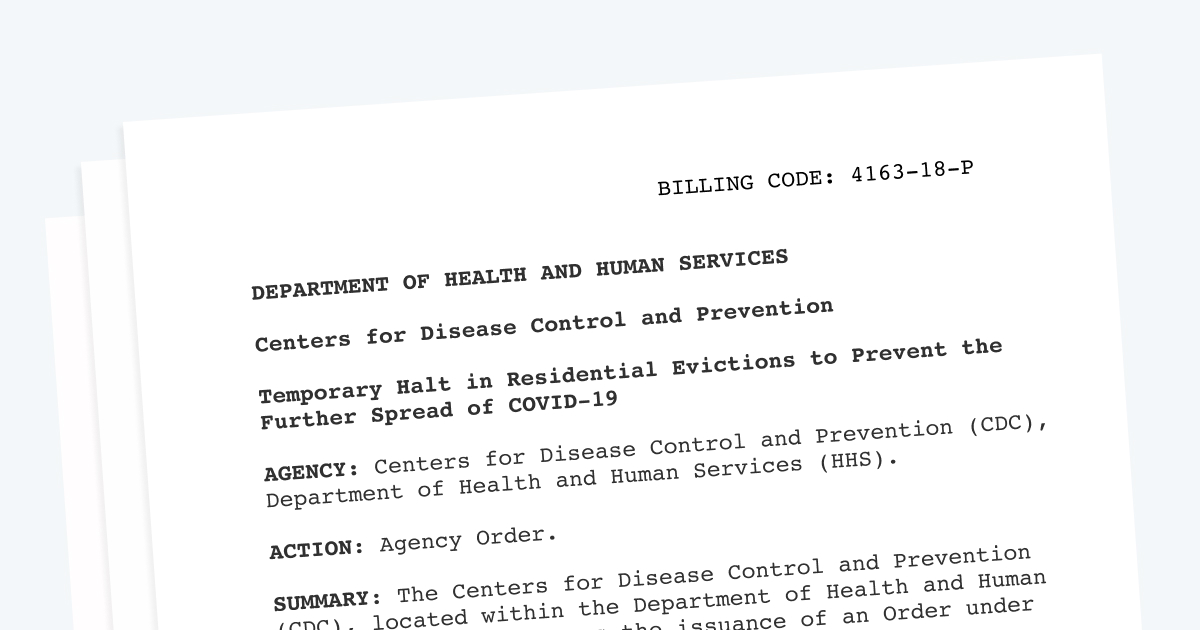
The Centers for Disease Control and Prevention has issued an order, effective from September 4th, 2020 and extended to July 31, 2021, that provides protection from eviction to prevent the further spread of COVID-19.
Although many questions about the order remain, to the best of our knowledge, this emergency action prohibits new and previously filed evictions of tenants who provide their landlords with a signed declaration stating that they meet all of the following criteria:
Each adult listed on the lease, rental agreement, or housing contract who qualifies for protection under the CDC’s moratorium should complete and provide this declaration (updated to reflect the moratorium’s extension through March 2021) to the landlord or property manager. The order enumerates penalties for anyone who violates it, including fines of $100,000 to $500,000 and civil and criminal penalties.
Click Here for the Tenant Declaration Form (updated 2/01/2021)
We urge you to share this information widely. By 2018 American Community Survey estimates, this order could apply to up to 86% of renter households that had total household income below $100,000. In the 17 cities we’re tracking, we’ve already seen 43,526 eviction filings. This order could provide meaningful relief to families at risk of eviction and its devastating harms, especially if coupled with rent relief.
Tenants who are threatened with eviction after providing this declaration or who have questions about eligibility should contact a legal services provider. A list of legal aid organizations is available on Just Shelter.
The CDC’s emergency action does not provide rent relief to tenants in the form of canceling rent or providing financial assistance to pay rent. Under this order, tenants still must pay what rent they can, and the order does not preclude landlords from charging late fees, penalties, or interest that results from non-payment or partial payment of rent as specified in the lease. At the end of the moratorium period (January 1, 2021), tenants will be responsible for all unpaid rent that accrues during the moratorium.
The CDC moratorium does not preempt states and local jurisdictions from implementing or adopting more comprehensive eviction moratoriums and eviction prevention measures. That means that if a state, town, city, or county already stopped evictions or adopted other interventions (e.g., no late fees, no reporting to credit bureaus or collection agencies, no eviction for any non emergency reason), that order is still in effect.
The Eviction Lab will continue to update our COVID-19 Housing Policy Scorecard, which tracks statewide housing policies, and COVID-19 Policies Table, which includes information about local orders, to keep renters informed about what policies exist in their states in addition to the CDC moratorium. The National Low Income Housing Coalition and National Housing Law Project will also continue to provide updates on housing amidst the pandemic.
The Eviction Lab will also continue to update and expand the Eviction Tracking System, allowing us to monitor the impact of the new federal moratorium and observe filings after its expiration.